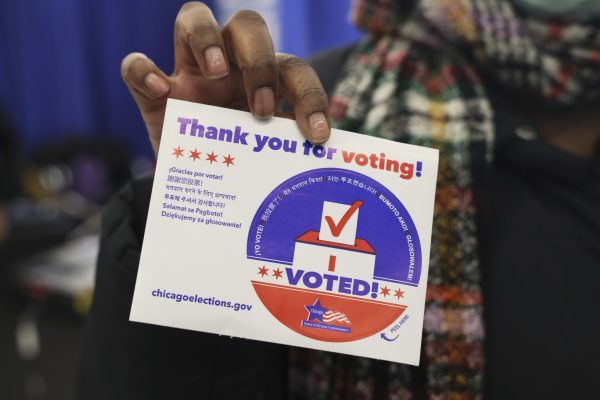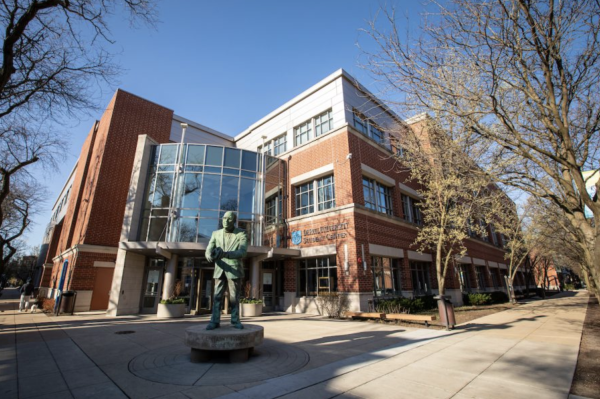DePaul releases first draft of 6-year plan
DePaul has released the first draft of its six-year plan, outlining the steps the university hopes to take to correct some of its problems, create new opportunities and ensure its longevity as an institution.
The plan was created with input from students, faculty and staff at town halls over the last few months. More public discussions will be held in the coming months and a final plan is expected to be submitted to the Board of Trustees for approval by May.
The plan is broken down into five “strategic priorities,” which range from laying the groundwork for DePaul’s continued fiscal health, to “(ensuring) and inclusive, welcoming environment for all.”
One of the more ambitious goals is to grow the university’s endowment to $1 billion by 2024 from its current amount of roughly $550 million.
Student Government Association (SGA) president Michael Lynch said the endowment goal might be tough to accomplish.
“Our endowment goal is audacious, but so is our mission to educate students,” Lynch said. “We take on tough tasks all the time and this is just one of those moments.”
Bamshad Mobasher, the president of the Faculty Council, said that our endowment needs to be a size that is more typical of a university of DePaul’s size.
“The university is looking at accomplishing this (growth) through fundraising and developments,” Mobasher said. “There is going to be a major fundraising campaign.”
He also said that any budget surpluses at the end of the year will then be funneled into the endowment.
Mobasher indicated the $1 billion number is subject to change.
DePaul athletics is only mentioned once, in a section about creating “an inclusive and engaging experience for all students.”
“Leverage athletics to strengthen community and enhance campus life,” reads the brief mention.
Lynch isn’t concerned about the lack of focus on DePaul sports.
“I don’t think it’s a bad thing because athletics already has so much great work going on,” Lynch said before expressing his support for embattled athletic director Jean Lenti Ponsetto.
At a strategic planning town hall event on Nov. 16, SGA vice president Gracie Covarrubias said she wanted to decrease the university’s reliance on athletics as a means of community engagement.
“We shouldn’t just be inviting people back for the next basketball game,” she said. “We should be inviting them back for the next art exhibit and community event or service day. The Vincentian mission provides more opportunity to foster community (than athletics can).”
Another ambitious goal for the university is to expand academic programs for students interested in going into the medical field.
Mobasher said that increasing the availability of health-related courses might be a way for the university to increase its waning enrollment.
While the plan doesn’t say anything specific about creating a medical school, President A. Gabriel Esteban told Crain’s in December that he can’t imagine a future for DePaul without a bigger presence in the healthcare field.
DePaul would face stiff competition from established and renowned medical programs at University of Chicago and Northwestern University.
Lynch said SGA advocated for a range of topics they felt were important to be included in the plan after hearing from students. Increasing access to experiential learning, preparing graduates for the job market and supporting “affordability strategies” were all initiatives they pushed for.
“We recognize and heard from our community that college is expensive and we’re exploring every opportunity to decrease costs to students while still being able to provide the resources that they ask for,” Lynch said.













tim • Mar 6, 2018 at 5:28 pm
Can’t wait to see the final result!